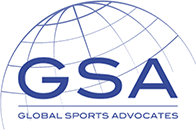The Fédération Équestre Internationale (FEI) is the official international governing body of equestrian sports. Headquartered in Lausanne, Switzerland, it was formed in 1921 and currently includes 136 National Equestrian Federations. When someone violates anti-doping rules, experienced equine lawyers like the ones here at Global Sports Advocates can help prove your innocence.
Table of Contents: |
Disciplines Affected by the Equine Anti-Doping and Controlled Medication Regulations
 The FEI recognizes eight disciplines for both regular and para-equestrian competition:
The FEI recognizes eight disciplines for both regular and para-equestrian competition:
- Driving
- Dressage
- Endurance
- Vaulting
- Eventing
- Para-Equestrian
- Reining
- Jumping
The Equine Anti-Doping and Controlled Medication Regulations (EADCMRs) were adopted and implemented in the spirit of the World Anti-Doping Code. They apply to persons responsible for horses and their support personnel as a condition of participation in FEI activities. There are two sections: the Equine Anti-Doping Rules and the Equine Controlled Medication Rules.
Equine Anti-Doping Rules
The banned substances list is revised on a yearly basis. According to our equine lawyers, in 2021, it included 998 different substances.
Common ways that contamination occurs and a horse inadvertently tests positive for a banned substance include:
- Using an untrustworthy supplier for hay, feed, and supplements or failing to take steps to ensure these items are stored correctly.
- Feeding a horse food that hasn't undergone Naturally Occurring Prohibited Substances (NOPS) testing to ensure it is free from common contaminants such as morphine, caffeine, theobromine, hyoscine, theophylline, atropine, and hordenine.
- Failing to account for contaminants in the horse's environment that could lead to positive tests, such as poppies, crocuses, nightshade, and lupins.
- Neglecting to clean stables between horses to prevent contamination from the urine or droppings of a different horse that has taken a banned substance.
Equine Controlled Medication Rules
Controlled medications are substances that have a therapeutic value or are commonly used in equine medicine. However, they have a recognized potential to affect a horse's performance or present a welfare risk to a horse.
Controlled substances are prohibited in-competition but can be used for medical purposes. According to our equine lawyers, if a horse has been given a controlled medication, a withdrawal time must be observed before a competition. The withdrawal time varies depending on the substance used, but the FEI publishes a list of detection times that can serve as a reference.
Like the banned substances list, the controlled medication list is updated on a yearly basis. In 2021, it included 246 different substances.
Mistakes that can result in a violation of controlled medication rules include:
- Failing to record supplement use in the horse's FEI Medication Logbook
- Neglecting to wear gloves or wash hands when administering medication to horses
- Failing to use separate feed buckets and stirrers for in-feed medication
- Administering medication in an area that can't be properly cleaned and is used by more than one horse
- Having more than one person administer medication, which increases the odds of a dosing error
Human Anti-Doping Rules
In addition to the Equine Anti-Doping Rules, human athletes competing under FEI rules are subject to out-of-competition and in-competition drug testing pursuant to the World Anti-Doping Code. It is a human athlete’s responsibility to know which substances are banned and which are restricted. However, unintentional positives can be caused by a wide range of factors—including ingesting contaminated food or supplements.
![International equine anti-doping lawyer]() Accused of an Anti-Doping Rule Violation? Our Experienced Equine Lawyers Can Help!
Accused of an Anti-Doping Rule Violation? Our Experienced Equine Lawyers Can Help!
If you are a responsible person who has been accused of violating the Equine Anti-Doping Rules because your horse tested positive, it's crucial to speak with experienced equine lawyers as soon as possible. Give us a call at +1-207-747-5899 or click the button below to schedule your initial consultation.
Our equine lawyers are devoted to the very specific practice of sports law and have represented athletes from over 70 countries spanning more than 70 different sports. When it comes to Equine Anti-Doping Rule violations, you simply can't afford to take any chances. Don't hesitate. Contact our equine lawyers today.

 Accused of an Anti-Doping Rule Violation? Our Experienced Equine Lawyers Can Help!
Accused of an Anti-Doping Rule Violation? Our Experienced Equine Lawyers Can Help!